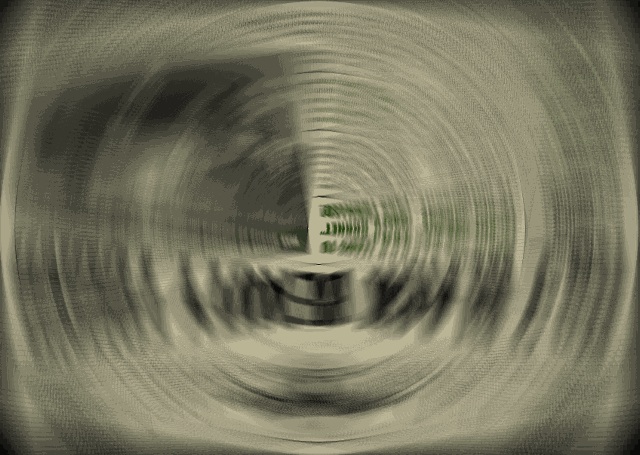UPDATES
Media Week – Waterlogged; Horse and cart reporting; Simplistic moralising
July 3, 2012 | Allon Lee

Waterlogged
Age/Sydney Morning Herald (June 23) Middle East correspodent Ruth Pollard reported on an NGO study claiming that Gaza drinking water is “too contaminated”, “never in continuous supply because of daily power shortages,” and the infrastructure distributing it is in disrepair because Gazans have lived under an “Israel-imposed military blockade for five years.”
Nowhere in the article was Hamas mentioned, which is astounding given that it has been the sole governing authority in Gaza since 2007 and has been effectively at war with Israel while doing little for its own population’s welfare or water needs.
Furthermore, she ignored or was unaware of IDF reports documenting at least 27 water and sewage purification projects in place in Gaza – all of them facilitated by Israel, and not a single one funded by Hamas.
Pollard also mischaracterised the report in question “Gaza’s Children: Falling Behind” as having found that “rates of sanitation related diseases such as typhoid fever and watery diarrhoea… have doubled in children since the blockade began.” But nowhere does the report make that claim.
In fact, the report supplies a chart of UNRWA statistics that show recent marked improvement in most categories of reported disease among children – especially typhoid fever.
The numbers on “watery diarrhoea” show, at worst, only a small uptick since the blockade began in 2007 – not a doubling. In addition, the report qualifies its own findings with a disclaimer that “more investigation is needed” before linking the disease numbers to the blockade, as Pollard did.
Pollard approvingly quotes Ahmed al-Yaqoub, a Palestinian official, as stating “the economy in Gaza is get- ting worse and worse and more and more people are turning to agriculture to boost their income.” But the World Bank says Gaza’s economy is not getting “worse and worse” but has seen strong GDP growth since 2009 – and was averaging 25.8% annual growth in the first three quarters of 2011. Pollard failed to challenge or correct al-Yaquob on his untruth.
Alleging that “the UN considers Israel’s land and sea blockade of Gaza to be a denial of basic human rights and a contravention of international law,” Pollard ignored last year’s UN Palmer Commission, which deter- mined that the blockade was legal under international law.
Horse and cart reporting
The Age, Courier Mail, and Canberra Times ((June 19) all used the same news brief that featured a most opaque opening to report on a terrorist ambush that resulted in the death of an Israeli Arab citizen: “Two gunmen and an Israel civilian were killed during an exchange of fire along Israel’s southern border with Egypt in an area close to the Gaza Strip.”
The gunmen were terrorists who infiltrated Israel from Egypt to plant an explosive device which they detonated when an Israeli vehicle passed. The gunmen then fired their weapons, which included a rocket-propelled grenade that caused a vehicle to roll down a hill, fatally wounding Israeli Arab Saeed Fashafshe, who was working on the border fence. The IDF arrived and killed the gunmen during an exchange of gunfire.
The Sydney Morning Herald (June 20) ran a photo caption story on the incident with a headline “Security breaks down on border between Israel and Egypt” which seems inappropriate for characterising violence sparked by the deliberate actions of heavily armed terrorists.
An Age story (June 21) on Hamas’ firing of over 100 rockets from the Gaza Strip at Israel and the IDF’s subsequent military operation received the headline of “Israel bombs Gaza Strip”.
Simplistic moralising
The Sydney Morning Herald‘s (June 22) Jonathan Swan chose to damn Israel for its handling of the complex issue of how to deal with the 60,000 Africans that have entered the country over the last decade.
Swan argued that Israel was obliged to take in the 60,000 mostly Sudanese and Eritreans who, since 2005, “have crossed the Sinai Desert and through the Egyptian border into Israel” because the Jewish state was founded “to be a haven for refugees” and its leaders had expressed pride in reaching out “not only to Holocaust survivors, but to desperate people from… Vietnam, Kosovo and Darfur.”
With 1,000 Africans entering Israel each month, Swan didn’t seem to expect Egypt, which is geographically closer and many times larger, to help asylum seekers who are crossing through Egyptian territory on the way to Israel. He did not even call on the Egyptian authorities to do the bare minimum and protect them from the constant attacks they experience in Sinai. Neither were the 56 countries on the African continent or even the United Nations called on to help. Only Israel was mentioned.
Allon Lee
Tags: Israel





